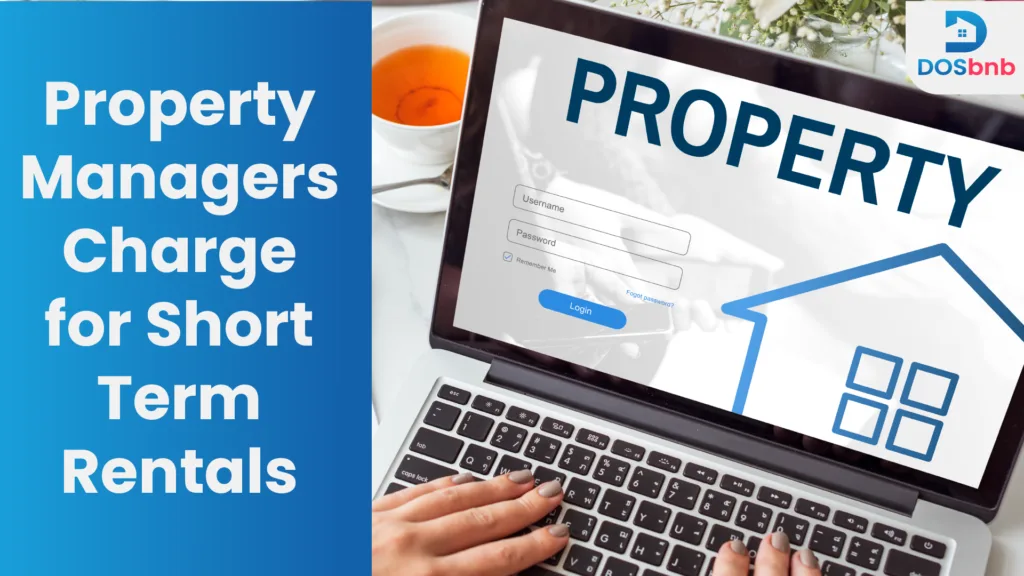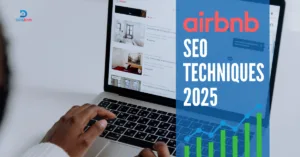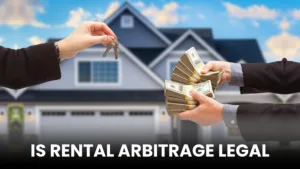
Airbnb hosting is a proven way to earn extra income if you manage your properties right.
However, managing the properties isn’t like listing them on the platform. Hosts have to market their listings, maintain them, manage finances, screen guests, and so on.
One way to go through all of this is by hiring property managers for vacation rentals. They work to make things easier for hosts like you.
But how much do they charge? It depends on their services, the property location, and how they manage it. While some short-term rental managers charge a percentage of your rental income, many have a fixed fee. Some even use a mix of both.
So, read this guide, understand these fees, and save much of your earnings.
What Is Fee of STR Property Managers?

Technically, there is no one-size-fits-all answer to this question.
Typically, the average fee for a property manager is 15% to 20% of the monthly rental value in the short-term vacation rental industry.
What it means is that if your property makes $2,000 a month in rent, you might pay $300 to $400 under the tag of monthly management fee.
However, the management fee depends on some property- and market-related factors (explained below). It can even go from 10% to up to 40%.
Some management companies even charge a fixed fee (such as $200 or any number) irrespective of what a property earns in a month.
While you get a short overview of the management fee, the discussion doesn’t end there.
Don’t forget to read on and go through different fee models. Also, what are these fees and what is involved in the management service?
Different Models to Pay Vacation Rental Property Managers

There are three famous models that hosts on Airbnb, Vrbo, Booking.com, Expedia, and other OTAs use to pay property management fees:
1. Percentage of Monthly Rent
Airbnb hosts are in favor of the percentage-based model as they only have to pay when they earn themselves. It lowers the burden on the pocket as they pay from the profits.
In the percentage-based model, hosts pay a particular percentage of their total monthly rental earnings as the property management fee.
Typically, the set percentage is between 15% and 20% in most cases.
This model isn’t just good for hosts but also rental managers. They happily manage the property as they are partners, and their earnings are directly proportional to the property’s performance.
2. Fixed Property Management Fee
In the fixed property management fee model, hosts pay a fixed monthly fee to property managers regardless of the property’s rental income.
For example, the fixed management fee for a single-family home is $100 per month (it can vary as per the market). It remains constant whether the property earns $1,000, $2,000, or $3,000.
Generally, the fixed fee depends on the property size, type, and the service provider.
The advantage of this model? It makes it predictable for hosts to calculate their expenses.
The disadvantage is that the management companies aren’t motivated to increase the income from your rental property since they lack the personal advantage.
3. Hybrid Model
The hybrid model combines percentage-based and fixed management fee models.
In this model, a manager charges a base fee (which is fixed) along with a certain percentage of the total rental profits earned in a month.
For example, a manager can get a fixed $100 fee with 10% of monthly profits.
The advantage of this model for managers lies in the ‘balanced’ approach between predictability and performance rewards when a property performs well.
What Do Property Management Fees Cover?

What property management fees cover (or what the responsibilities of rental property managers are) depends on the agreement with the host.
Generally, their responsibilities overlap with the co-host person.
From assisting with handling booking to full support services package, property managers can:
- Market your property
- Set the right/competitive rental prices
- Screen and select the valid guests
- Communicate to the guests
- Handling property maintenance and repairs
- Manage guests’ complaints and issues
- Manage property bookkeeping
In addition, property managers ensure the properties/listings and the way the host operates comply with the local laws and regulations.
The fee of managers also depends on the tasks they are assigned.
Additional Fees & Costs Managers Can Charge
Along with the monthly fee property managers charge, they can also demand:
- Initial set-up or onboarding fee to set up and optimize all listings
- Cleaning service fee as per the property size
- Maintenance charges that went into handling unexpected issues and/or repairs
- Routine/general inspection fee
However, these fees can also be included in the overall invoice.
As a host, make sure you discuss all types of fees included in the overall invoice and clarify all the charges before you start working with the property managers.
Factors That Affect Property Management Fees
There are four primary factors that affect the management fee:
- Property location (urban, rural, beach, mountain rental)
- Property type (single-family home, condo, apartment, commercial property)
- Services property manager offers
- Payment mode/terms and conditions manager and host decide
In addition to these factors, the reputation of the manager, vacancy rate, and market dynamics also affect the overall management price for short-term rentals.
Conclusion
Hiring a property manager makes hosting easier, but it comes with a cost.
The fees depend on how they charge—either a percentage of earnings, a fixed monthly fee, or a mix of both. Other factors like location, property type, and services also affect the cost.
Property managers can handle many tasks, such as marketing, guest screening, communication, maintenance, and much more.
The best strategy is to discuss all charges in advance to avoid any surprises.
FAQs
Are Airbnb Management Fees Worth It?
Airbnb management fees are worth it if you want a hands-off experience. A property manager handles bookings, guest communication, and maintenance.
What Is Full-Service and Half-Service Management?
Full-service management includes everything, like guest communication, cleaning, and maintenance, but costs more. Half-service management covers bookings and guest interactions but leaves cleaning and maintenance to you.
How to Assess Property Management Fees?
When choosing a property manager, don’t just look at the fees but the services they provide. Compare what is included in the cost. Also, ask about any extra fees.
Are Property Management Fees Tax Deductible?
Yes, property management fees are tax-deductible as business expenses. Keep detailed records of all charges, including extra costs like maintenance, which helps with tax filing.








